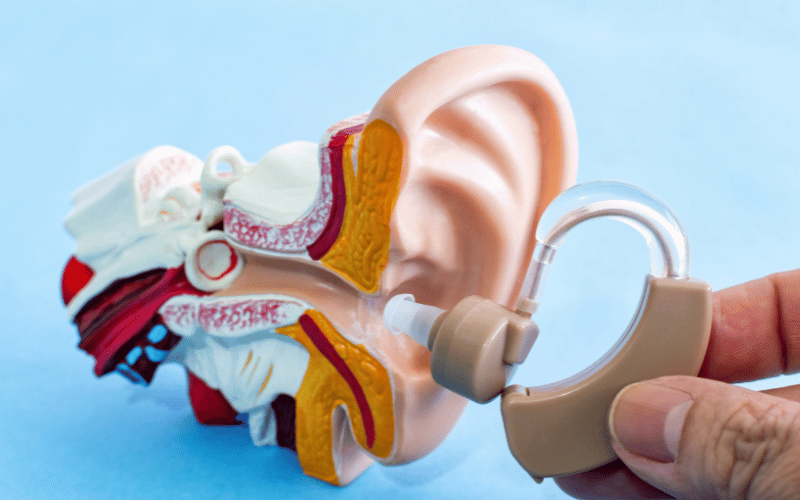Sign 4: Hearing Impairment

A world in silence is not a pleasant prospect, but it’s a reality many people with MPS have to confront. A common and detrimental symptom of MPS is hearing loss. It sneaks in slowly, altering the lives of those affected and those around them.
The root cause lies in the persistent buildup of GAGs in the body. This buildup is not confined to the skeletal or muscular systems but also significantly affects the delicate structures of the middle and inner ear. When these essential organs get disrupted, the normal functioning of hearing becomes compromised.
In MPS patients, the process of hearing impairment often starts with a gradual decrease in the ability to pick up sounds. This progressive hearing loss has a broad impact, affecting both ends of the frequency spectrum. Whether it’s the high-pitched sound of a bird chirping or the low-pitched hum of a car engine, the ability to perceive these sounds diminishes over time. As a result, the overall ability to communicate and engage with the world becomes a struggle.
Alongside this progressive loss, chronic ear infections are also a frequent occurrence in individuals with MPS. Often these infections are shrugged off as typical childhood illnesses, but their persistent and recurrent nature calls for a deeper investigation. When left untreated, these infections can exacerbate hearing loss. In severe cases, they can even inflict permanent damage to the ear structures, amplifying the hearing impairment.
Given the significant impact of hearing loss on a person’s life, managing this symptom becomes paramount. Modern medical interventions like hearing aids come into play, proving instrumental in improving the quality of hearing. Coupled with this, regular audiometric assessments become part of the routine for those living with MPS. These assessments provide crucial insights into the progression of hearing loss and guide the necessary changes in the management plan.
The battle against hearing loss in MPS is a challenging one, but it is far from hopeless. With timely intervention, proper care, and a comprehensive management approach, the silent world can be filled with sounds again. This underlines the critical importance of early detection and the role of awareness in combating the adverse effects of MPS. (4)